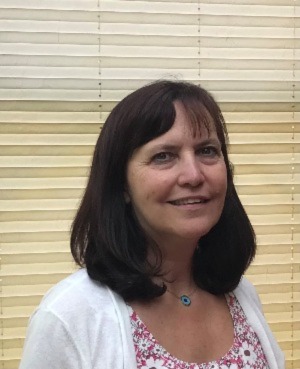Civica: Integrated health and social care: success of new approach will hinge on high quality data #techUKSmarterState
This week (26-30 September) the Central Government Programme is running its Building Smarter State Week in the run-up to the eighth edition of our flagship public services conference, Building the Smarter State, which will take place at The Royal Society on Thursday 29 September. All week we'll be featuring guest blogs from members on topics supportive the agenda.
Read the latest blog below:
There’s no doubt that our NHS and social care services are facing a huge set of challenges as we head into the winter period. With the COVID-19 backlog, intense financial pressures and too few staff to meet demand, it’s more vital than ever that services use their resources and data as accurately as possible to offer the best patient care.
The announcement earlier this year that 42 Integrated Care Systems (ICS) would be established, following several years of locally led development, signalled a step change in taking a more holistic view across both health and social care for the first time.
The hope is this will help NHS leaders drive better value across their organisations and join up the data to see the full impact of activities. In turn, this will help to enhance productivity and value for money, tackle inequalities in outcomes and access and ultimately improve outcomes in population health and healthcare, looking at both clinical and social care settings.
Advancing the digital journey
A key part of this is joining up the data to have a complete digital record for an individual – by March 2025 it’s intended that all clinical teams in an ICS will have access to a complete view of a person’s health and social care record which they can contribute to. This will no doubt be a challenge. While health settings have been capturing huge amounts of data for a very long time, social care is further behind on this digital journey.
According to the Department of Health and Social Care’s 2022 report, Joining up care for people, places and populations, “While more than 60% of NHS Trusts have made good progress into digitisation with 21% now digitally mature, the picture is often much more challenging in social care. Only 40% of social care providers have electronic care records, with the rest largely paper based.” So if we’re to reach true integration, we’ll need to do some ‘digital levelling up’ first.
The first step is to identify the right digital technologies within the health and social care environment to enable organisations to collect, manage and use the data needed. From there, it’s building the right platform to consolidate health and social care data together into a joint environment to look holistically across the whole system. For this platform to deliver, health and care providers must ensure they have the right mix of digital skills at all levels, from frontline care providers to finance and HR. A truly integrated system will be vital in delivering responsive care and seeing the bigger picture of a patient’s journey through both the health and social care system.
It’s going to be a challenge, with increased demand and complexity due to a growing and ageing population. Figures from the Kings Fund suggest that the number of people over 85 in the UK has increased by over a third in England in the last ten years and will more than double by 2035 to 2.9 million individuals – which will place increased responsibility on local councils to provide an ever-higher level of care, for longer periods of time.
The move towards ICS’s has the potential to be a game-changer for our health and care landscape. Local councils will also need support from digital partners and not just to be involved but jointly driving the agenda alongside the NHS and other key partners. Success will mean more joined-up, patient-focused, cost-efficient care across from the hospital ward to the local community. The key determinant of this success, however, will be readily accessible, reliable and secure data.

This article was written by Tracey Cotterill, MD Population Health Intelligence at Civica. To learn more about this author, please visit their LinkedIn.
To learn more about Civica, please visit their LinkedIn and Twitter.
Building The Smarter State Conference - 29 September
You can also follow the campaign on techUK's Twitter and LinkedIn - #techUKSmarterState.
Join our Government Group
All techUK's work is led by our members - techUK members can keep in touch or get involved in our work by joining our Government Group, and stay up to date with the latest events and opportunities in the programme. Scroll down to view recent insights, and upcoming events and opportunities.

techUK's Government Group is our thriving community of 500 tech suppliers to Government. The group is composed of companies of all sizes, from new entrants to some of the biggest companies in the world. Group members receive our govtech market intel, and opportunities to engage with Government to understand their requirements and explore how tech can help meet them. If you're a techUK member working with Government to transform the delivery of our public services then this is the group for you.



